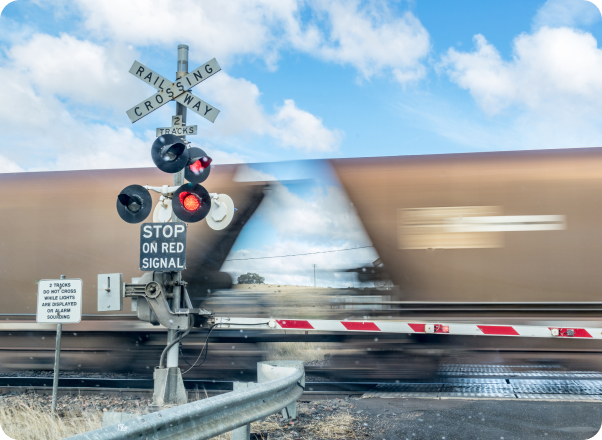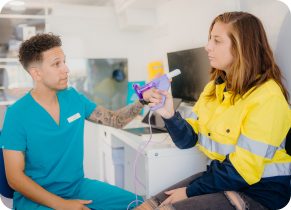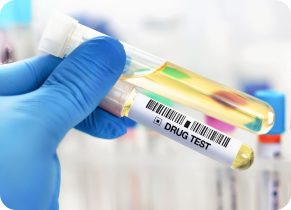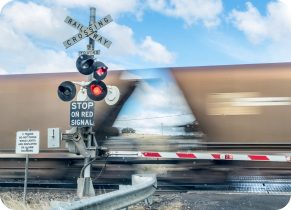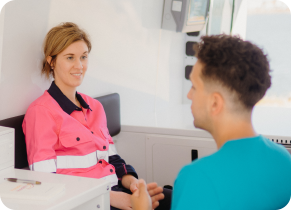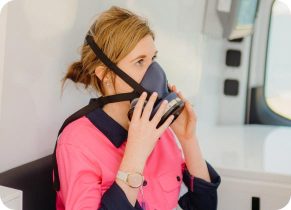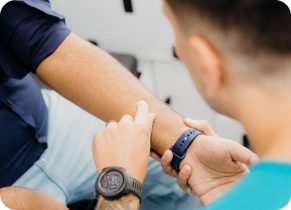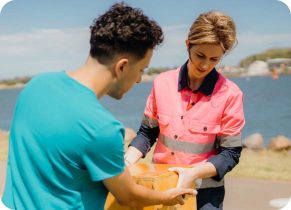Ensure your workers get home safely every day
By identifying and addressing physical, cognitive or behavioural conditions that may affect driving ability, our specialist team can ensure that your workers have the physical and mental health to perform their roles carefully and effectively to ensure they get home safely every day.
Our health screening vans and visiting health professionals can perform driver and rail medicals on-site, saving time and hassle. Alternatively, employees can come to one of our clinics.
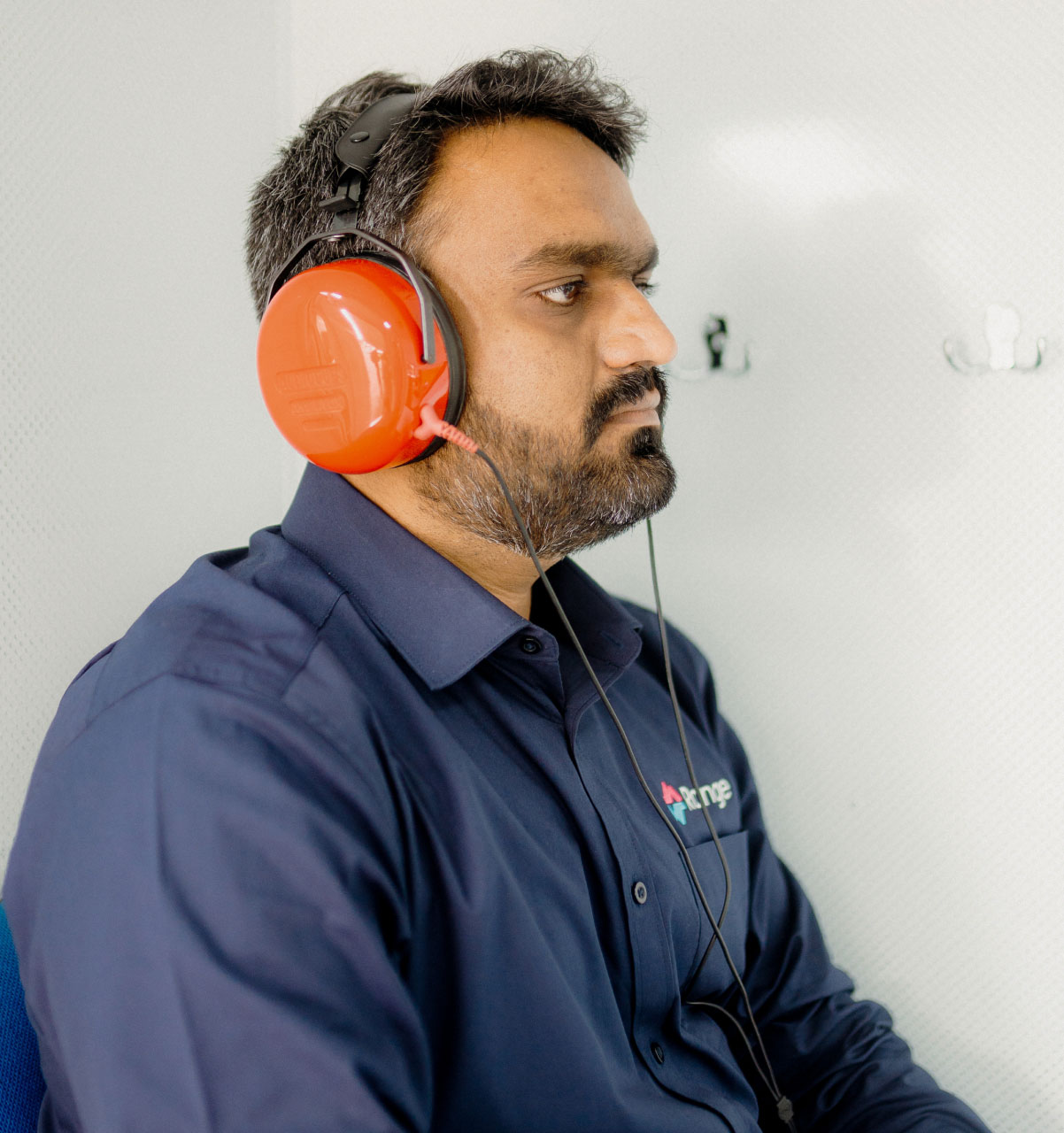
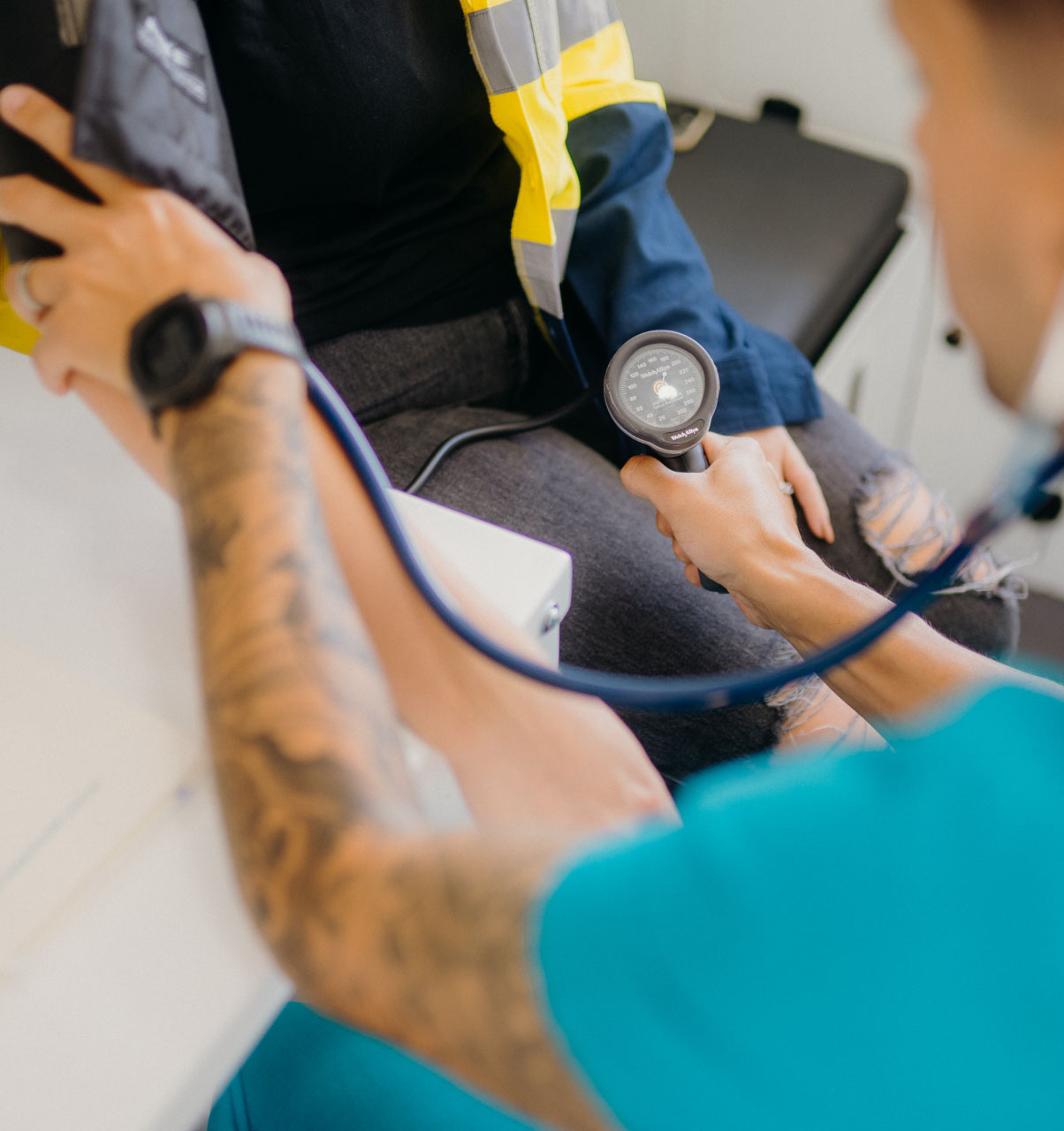
Benefits of driver and rail medicals
- Keep our roads and rail network safe
- Improve worker wellbeing and performance
- Meet your WHS goals
- Reduce worker’s compensation claims and insurance fees
- Minimise the risk of absenteeism after injury
- Prevent accidents and maintain a positive brand image
Health conditions that affect safety
- Musculoskeletal conditions
- Cardiovascular disease
- Neurological disorders
- Psychiatric disorders
- Sleep disorders
- Blackouts
- Diabetes
- Vision impairments
- Substance misuse or abuse
Our Fitness to Drive, Trucksafe, and Dangerous Goods driver medicals confirm whether your workers’ health is a safety risk on the road.
Commercial driver medicals
Fitness to Drive medical
Taxi drivers, public transport drivers, couriers and truck drivers are all required to undergo Fitness To Drive medicals. This assessment identifies any health conditions and treatments that may harm a driver’s sensory, cognitive, or motor function while driving.
Dangerous Goods medical
This medical is required for any drivers transporting over 500 litres or kilograms of hazardous items, including toxic or oxidising substances and flammable liquids, gases, or solids. Like the above, this assessment focuses on medical conditions and treatments that may impact the ability to drive safely.
Once these medicals are complete, our specialist practitioner provides a ‘Fitness to Drive’ Report to be submitted as part of your worker’s driver’s accreditation.
Conditional licenses
If our assessment reveals a relevant medical condition, your driver must declare this finding to the relevant authority. This may result in the issuing of a conditional licence that permits driving only under certain terms. For instance, wearing contact lenses to correct poor vision. In other circumstances, drivers may be required to undertake regular medical reviews and submit results to the Driver Licensing Authority. We can provide periodic assessments for these workers.
Rail medicals
Manage safety risks posed by the ill health of your team with a CAT 1, CAT 2 or CAT 3 Rail Medical and wellness management program.
CAT 1 Rail Medical
A Category 1 Rail Medical is the highest medical certification. It applies to workers who perform safety-critical work and whose sudden incapacity may lead to a serious incident that affects public safety or the rail network.
A CAT 1 Rail Medical includes:
- Hearing testing (audiometry)
- Vision testing
- Musculoskeletal assessment
- Cardiovascular assessment
- K10 questionnaire for psychological health
- Epworth sleepiness scale
- General medical examination
- Drug and alcohol screening
CAT 2 Rail Medical
A Category 2 Rail Medical applies to rail workers who perform safety-critical work where sudden incapacity won’t jeopardise public safety or the rail network.
A Category 2 Rail Medical includes:
- Hearing testing (audiometry)
- Vision testing
- Musculoskeletal assessment
- General medical examination
- Drug and alcohol screening
CAT 3 Rail Medical
A Category 3 Rail Medical applies to workers who perform non-safety critical work and whose health and fitness won’t directly impact commuters or colleagues. It assesses a worker’s ability to move through the rail corridor, function under supervision and reach a safe place in the event of an emergency.
A CAT 3 Rail Medical includes:
- Hearing testing (audiometry)
- Vision testing
- Musculoskeletal assessment
- Drug and alcohol screening
Frequently asked questions
Here are some of the most common questions we get asked about our driver and rail medical assessments.
What are my legal requirements?
All commercial drivers must be certified as medically ‘fit to drive’ by an accredited health professional. All rail workers must have a Rail Safety Worker Medical under the National Standard for Health Assessment of Rail Safety Workers. We’re skilled and accredited in performing both.
Who needs to have a fitness-to-drive assessment?
The following people are required to have a fitness-to-drive assessment:
- Drivers holding or applying for the following licence classes: MR (Medium Rigid), HR (Heavy Rigid), HC (Heavy Combination) or MC (Multi-Combination).
- Drivers authorised or applying for an authority to transport public passengers.
- Drivers authorised or applying for an authority to transport dangerous goods.
Other drivers who must meet the certification criteria of an authorising body or industry standards, such as members of TruckSafe.
What are the medical requirements for truck drivers?
Truck drivers must meet strict medical requirements when it comes to health factors that could pose a significant risk to road safety, including sleep disorders, substance abuse and vision impairments.
Visit the Austroads website for more information.
How often should a commercial driver's medical be done?
Commercial driver medicals must be completed every 3 years for drivers under age 50 and annually for those over age 50. Commercial drivers holding a class MC licence or living with certain health conditions must undergo more frequent medical reviews. Contact our team to learn more about your drivers’ specific requirements.
Who is defined as a rail safety worker?
The Rail Safety National Law (NSW) views any employee performing the below duties as a rail safety worker:
- Train operation
- Infrastructure construction and maintenance
- Any other tasks that the transport agency deems as rail safety work
Does a contractor need a CAT 3 Rail Medical?
Yes, a contractor does need a CAT 3 Rail Medical if it’s relevant to their role. Rail industry contractors must meet the same health requirements outlined in the National Standard for Health Assessment of rail safety workers as in-house employees.
Can a rail medical be performed as part of a pre-employment health assessment?
Yes. Our approved health professionals have extensive experience in performing rail workers’ safety medicals and pre-employment medicals in one visit. We can carry out any combination of health assessments your business requires.
How long is a rail medical valid for?
While it’s a legal requirement for a rail safety worker to undertake periodic medicals, the frequency of these assessments varies depending on the relevant category:
CAT 1 & 2
- Before entering employment
- Every 5 years until age 50
- Every 2 years from age 50 to age 60
- Every year from age 60 onwards
CAT 3
- Before entering employment
- At age 40
- Every 5 years from age 40 onwards
- Manage safety risks posed by the ill health of your team with a CAT 1, CAT 2 or CAT 3 Rail Medical and wellness management program.
